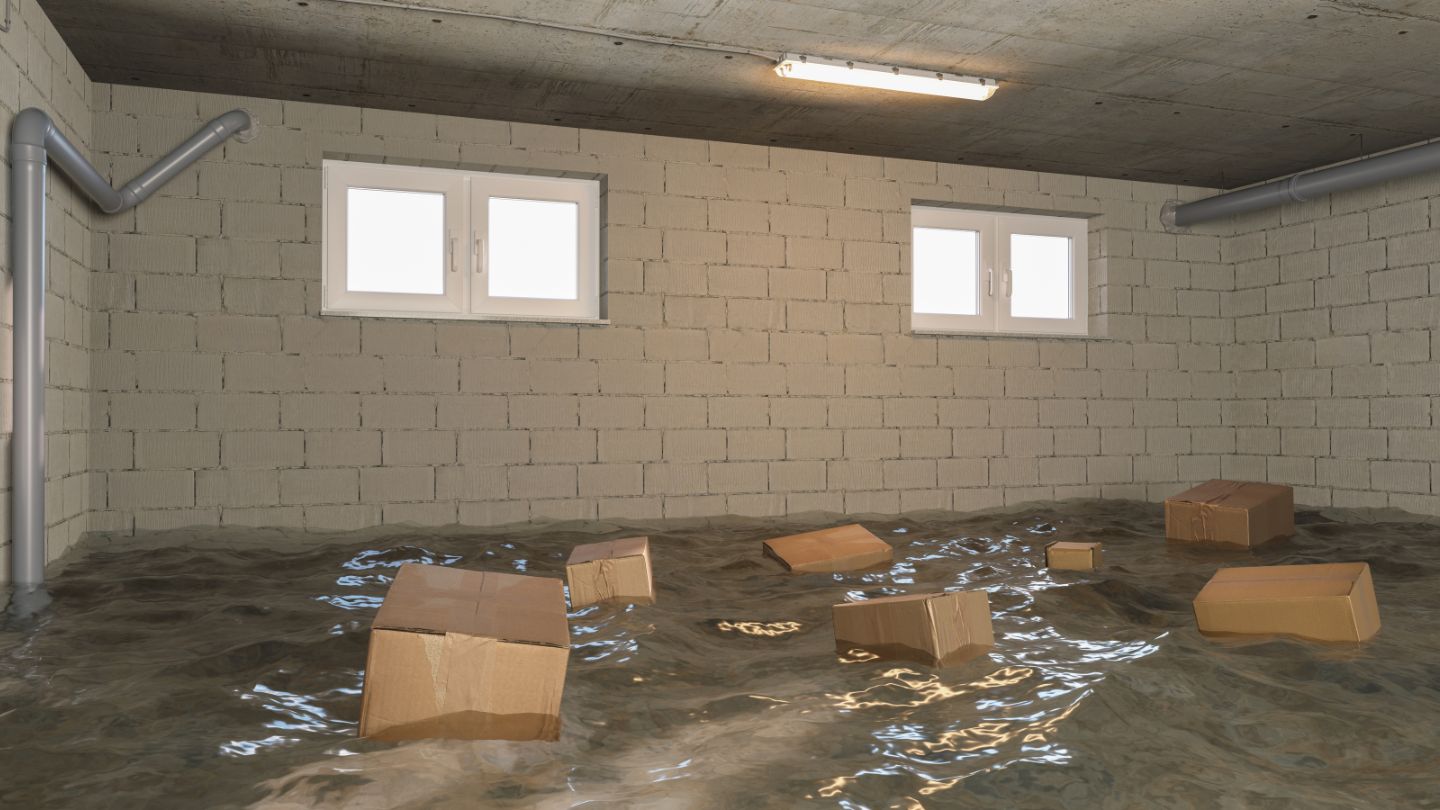
Basement water damage can be a nightmare for homeowners. It not only weakens a home’s foundation but also invites mold, mildew, and even pests. This article explains the most common causes of basement water damage and offers practical ways to prevent and repair it.
Moreover, readers will learn how basement moisture can attract unwanted critters, making pest control in Greenville SC a crucial consideration. Whether someone owns an older home or is building new, knowing how to protect a basement is key to saving money and avoiding health risks.
Poor Drainage Around the Home
Water always finds the path of least resistance. Poor outdoor drainage is often the root cause of basement water damage When rainwater doesn’t drain properly, it builds up around the foundation and can seep through walls and floors.
Clogged Gutters and Downspouts
Gutters and downspouts direct water away from the house. But if they’re clogged with leaves or debris, water overflows and settles around the foundation. This extra moisture slowly seeps into the basement, causing structural issues and water damage.
Improper Grading Around Foundation
If the yard slopes toward the house instead of away from it, water pools against the foundation during rainfall. Over time, this leads to cracks and leaks in basement walls. Regrading the soil can fix this and reduce future damage risks.
Cracks in the Foundation Walls or Floors
Foundation cracks are a direct invitation for water to enter the basement. These cracks can form due to soil pressure, temperature changes, or settling of the house over time.
Why Cracks Are Dangerous
Even small cracks let in moisture, which encourages mold growth. Insects and pests like termites also enter through these cracks, worsening the problem. This makes regular foundation inspections vital, especially in places needing consistent pest control like Greenville SC.
Fixing Foundation Cracks
Homeowners can seal minor cracks with waterproof epoxy. However, large or recurring cracks should be handled by professionals. Early repair not only prevents water damage but also deters pests from gaining access.
Faulty Sump Pumps or No Pump Installed
Sump pumps are designed to remove water that collects in a basement’s sump basin. If the pump fails or isn’t installed at all, water has no exit route during floods or heavy rains.
Importance of a Working Sump Pump
Without a working sump pump, a basement can flood quickly, ruining walls, floors, and furniture. Mold develops in just 24–48 hours, leading to health problems for residents. A backup battery system ensures continued protection during power outages.
Maintenance Tips for Sump Pumps
To keep a sump pump reliable, clean it every three months and test it during rainy seasons. Make sure the discharge pipe is clear and directs water far away from the foundation.
Poorly Sealed Basement Windows and Doors
Basement windows and exterior doors often go unnoticed, but they’re common entry points for water. Poor seals allow rain or groundwater to leak inside.
How Water Enters Through Windows
Older windows with cracked caulking or rusted frames can’t keep out moisture. Even light rain can seep in and collect on basement floors. This moisture encourages pests and promotes mold.
Fixing Window and Door Leaks
Applying new weatherproof seals or installing window well covers helps block water. In areas with heavy rain, replacing old basement windows with newer, sealed designs may be necessary.
High Groundwater Levels
Some homes are built in areas where the water table is naturally high. During rainy seasons, this groundwater rises and presses against the basement walls and floor, leading to leaks or flooding.
Why Groundwater is Hard to Manage
Unlike rainfall, homeowners can’t control groundwater levels. It can slowly wear down waterproofing systems and cause pressure cracks. Over time, this leads to water damage and pest problems.
Waterproofing as a Solution
Installing a French drain or an interior drain tile system can redirect groundwater before it becomes a problem. Waterproof coatings on walls add an extra layer of protection.
Plumbing Leaks Inside the Basement
Not all basement water damage comes from outside. A broken pipe, clogged drain, or water heater leak can also cause flooding or moisture buildup.
Detecting Plumbing Issues Early
Common signs include wet spots on walls, peeling paint, or a musty smell. Routine inspection of pipes and appliances helps catch problems before they grow.
Professional Help for Serious Leaks
While minor leaks might be easy to fix, burst pipes or sewage backups require licensed plumbers. Quick action not only protects the basement but prevents pest infestations drawn to damp environments.
Lack of Ventilation and Humidity Control
Even without visible leaks, basements can become damp due to poor ventilation. Humidity encourages mold, mildew, and attracts insects that thrive in moist air.
Managing Indoor Humidity
Dehumidifiers help reduce moisture levels in basements. Ventilation systems or air purifiers also help keep the air dry and healthy, discouraging mold and pests.
FAQs
Q: What causes basement water damage most often?
A: Poor drainage and cracks in the foundation are the most common causes of basement water damage.
Q: Can basement water damage lead to pest issues?
A: Yes, excess moisture attracts pests. That’s why pest control Greenville SC often includes basement inspections.
Q: How can I waterproof my basement?
A: Waterproofing includes sealing cracks, installing sump pumps, adding vapor barriers, and using proper grading outside the home.
Q: Should I worry about plumbing leaks in my basement?
A: Absolutely. Even small plumbing issues can cause major basement water damage if not fixed early.
Conclusion
Basement water damage isn’t just a minor issue—it can seriously impact the safety, structure, and cleanliness of a home. From poor drainage and cracks to faulty plumbing and high groundwater, the causes are varied but preventable.
Homeowners in moisture-prone areas like Greenville SC should also be alert to pest control concerns. Taking action through regular maintenance, waterproofing, and proper drainage can save thousands in repair costs and protect a family’s health.







